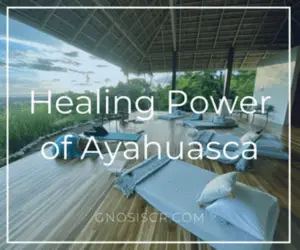Not one or two or three hours. Just 11 minutes a day of moderate physical activity would be enough to avoid premature death and even the risk of cancer.This is according to a recent study by the Epidemiology Unit of the Medical Research Council of the University of Cambridge in England.
These 11 minutes (or 75 a week) would prevent one in 10 premature deaths.The National Cancer Institute in the United States defines premature death as a death that occurs before the average age of death in a given population.Those responsible for the study analyzed nearly 200 investigations, which in turn considered some 30 million people who had participated for many years.
In Costa Rica, certified sports specialists reacted to the scope of this investigation, which was published this week by the scientific journal British Journal of Sports Medicine.
More in detail
The recent study suggests that a good exercise that would help avoid premature death is a brisk walk.If done in a sustained way, the person would also reduce the risk of suffering heart problems such as coronary conditions or stroke.
Some data thrown by the Cambridge researchers point out:
The 11 minutes a day would reduce the risk of developing cardiovascular diseases by 17%. In the case of cancer it is 7%.22 minutes a day (or 150 a week) reduces the risk of dying from any cause by 31%. 29% due to heart disease and 15% due to cancer.
“Getting some physical activity is better than doing none at all…If you find it feasible to do 75 minutes a week, you could try gradually intensifying up to the full recommended amount,” said SorenBrage, of the Epidemiology Unit.
What do they think in Costa Rica?
We consulted with three specialists in the field to find out their impressions of this study and if they really endorse this premise of 11 minutes of moderate physical activity a day.
They are:Andrés Garzona, medical specialist in preventive sports and rehabilitation cardiology.Aaron Conejo, physical therapist and personal trainer. Milton Rivas, physical trainer, researcher and academic at the National University.The three agree on one thing: the number of minutes dedicated to physical activity does not matter, but the important thing is to “beat zero”.
“The important message of this study is not to stay only in that ‘magic number’ of 11 or 150 (minutes). What we need is to beat zero: any physical activity is better than being sedentary.
“The study is clear: with only a low dose we have seen differences between the population that does and does not exercise.“In clinical practice, metabolic changes occur very quickly when the person does some type of activity, even with small amounts. I am a believer in small habits”, explained Garzona.
Conejo is also of the opinion -based on different studies- that any amount of physical activity, no matter how small, can have great benefits.Even, in a column written for this part time ago, Conejo emphasized the small opportunities that people can find to increase their heart rate:
- Take the stairs instead of the elevator
- Park the car further away from the store or take a quick walk around the block after dinner.
Exercise little by little whenever you can. While any amount of exercise increases life expectancy, the more exercise we get, the greater the benefit, says Alpa Patel, an epidemiologist with the American Cancer Society.
Benefits of moderate intensity
Rivas gave other examples of moderate-intensity exercise: easy swimming, flat cycling and jogging without exhausting.And speaking of moderate intensity is when the heart rate is between 120 and 140 beats per minute on average in the common population (non-athletes).
Garzona points out that moderate physical activity will place people further and further away from the risks of suffering from cancer or coronary problems (due to clogging of arteries due to fat).And, of course, it will break with a sedentary lifestyle, which is more than proven to be one of the risk factors for heart problems, he said.
The cardiologist emphasizes the importance that sedentary people (which is nothing more than a lifestyle devoid of movement or physical activity) do not think that they have to do high-impact exercises and for long hours.
The most important thing is, again, to beat zero. 11 minutes a day can be a good start!

